Tuesday 30th January 2024 at 2:30pm
Cley Village Hall
Talks by Members
Two interesting finds from Blakeney and Salthouse
Roger Bland
Two interesting objects have recently been found in our area. The first is a silver seal matrix (a stamp for sealing documents), found by metal detector user Steve Lancaster at Salthouse in April 2022, with the name of Robert of Kellingge (Kelling). The first rector named on the board of rectors in Kelling church is Robert. This has now been acquired by Norwich Castle Museum.
The second find, made by Mr and Mrs Bould in their garden in Blakeney, is a very worn religious medal showing St Peter and St Paul. It was struck for the Holy Year of 1750 inaugurated by Pope Benedict XIV. We will probably never know for certain how it came to be lost our village, but Italian Prisoners of War were based locally during the Second World War.
Five Cley Men Went to War and Died.
Richard Jefferson
The sad story of loss in World War II.
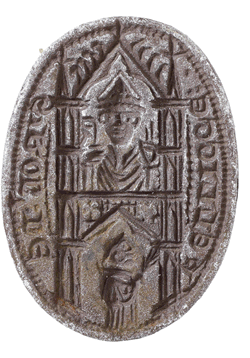
Tuesday 27th February 2024 at 2:30pm
Cley Village Hall
Whaling from Norfolk
Charles Lewis
This is the story of Norfolk’s “Greenland Fishery”, the annual fishery for whales which took boats from Yarmouth and Lynn into Arctic waters hunting for whales from as early as the 17th Century. When did it start?, which ports were involved?, how was it conducted?, when and why did it end?, and what evidence for this industry still survives in the county.
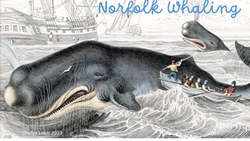
Tuesday 26th March 2024 at 2:30pm
Cley Village Hall
Crisis Before the Shipwreck: The Gloucester and Oliver Cromwell’s Western Design, 1654-1656
The discovery of the Gloucester warship off Great Yarmouth in 2007 by Norfolk divers Julian and Lincoln Barnwell has captivated the nation. An important warship to both British and global history, when the Gloucester sank in 1682, it was transporting the future King James II to Scotland. This talk considers the wider career of the Gloucester by focusing on its first expedition as part of Oliver Cromwell’s Western Design in the Caribbean, 1654-1656. Accounting for the ship’s involvement in assaults on Spanish colonial holdings including Jamaica, Dr Benjamin Redding will also explore the experiences of the Gloucester’s crew, revealing how they faced extreme physical and mental hardships in an unforgiving environment.
Dr Benjamin Redding, Senior Research Associate in Maritime History, University of East Anglia
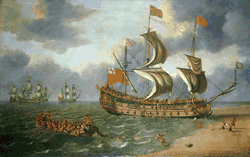
Johan Danckerts’ painting of the Gloucester wreck held by Royal Maritime Greenwich & Ben Redding
Tuesday 30th April 2024 at 2:30pm
Cley Village Hall
The Norwich Architects: Edward Boardman & George Skipper
Edward Boardman 1833 – 1810 and George Skipper 1856 – 1948
The pace of change in Norwich during the second half of the 19th century was extraordinary. By 1900 the population was double that of a century earlier. So there was a huge demand for different types of buildings needed by a modern Victorian city – housing, factories, chapel, hospitals, shops, offices and schools and colleges. Later on the arrival of electric trams presented another challenge to the cityscape.
Two men are largely responsible for reshaping 19th Century Norwich. First, prolific local architect Edward Boardman and, equally important, Boardman’s rival George Skipper, of whom John Betjeman said ‘He is altogether remarkable and original. He was to Norwich what Gaudi was to Barcelona’.
This talk will look at their lives and influences and, most importantly, the handsome buildings they designed in Norwich and beyond.
Susan Riddle
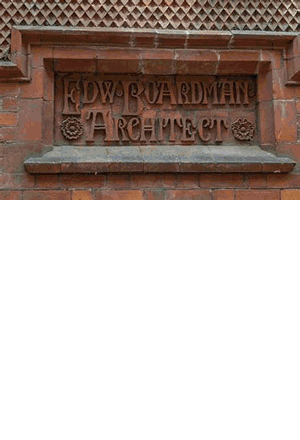
Tuesday 24th September 2024 at 2:30pm at Cley Village Hall
The Meaning of Geese – a thousand miles around North Norfolk on a creaking bicycle
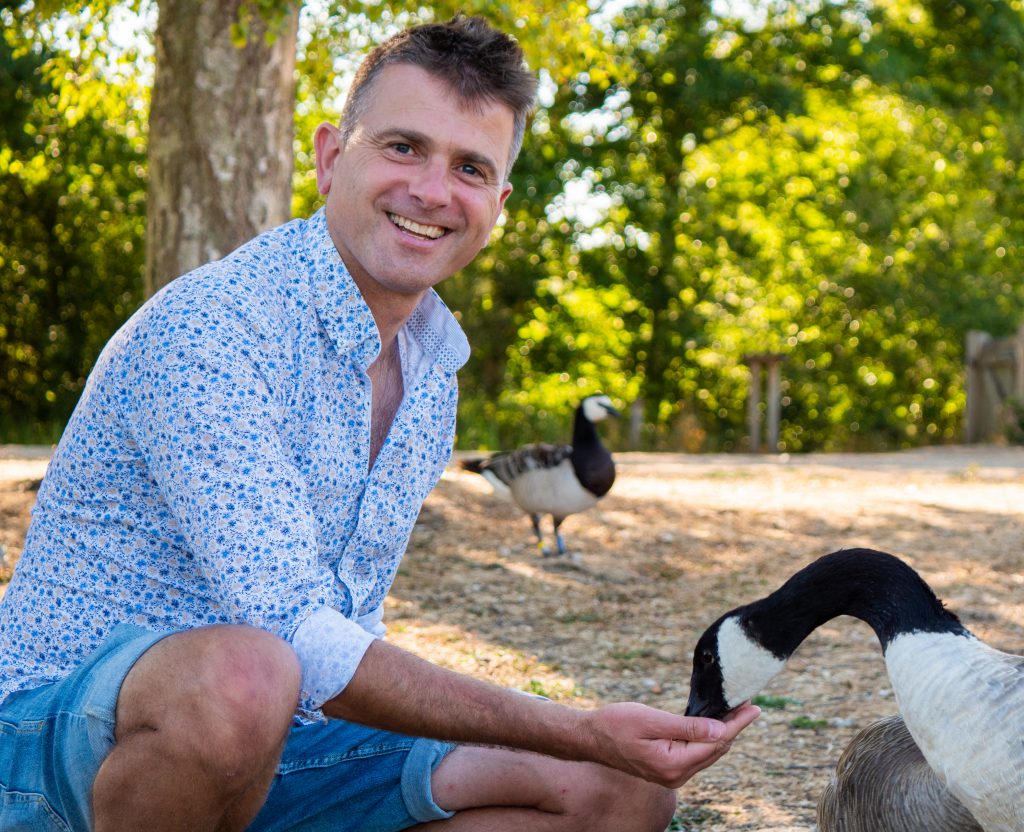
Nick spent Covid lockdowns observing Arctic geese as they overwintered in the county. Over seven months, he cycled 1,200 miles around Norfolk on his mother’s 42-year-old bicycle, watching brent and pink-footed geese, writing up his observations in a diary.
Nick’s experiences led to a book, ‘The meaning of geese: a thousand miles in search of home’ which was the 2023 Book of the Year at the East Anglian Book Awards. It was described by The Guardian as: ‘a gorgeously observed paean to the beauty and complexity of these birds, and the landscape of North Norfolk.’
His topic for BAHS is a playful rewording of his book title: “The Meaning of Geese – a thousand miles around North Norfolk on a creaking bicycle.” While his extraordinary journey is recent history, his observations on the geese, whose abundance in North Norfolk is threatened by, amongst other things, climate change, are an important historical record for naturalists of the future.
Nick Acheson, is a Norfolk born naturalist, ambassador for the Norfolk Wildlife Trust and grandson of a Blakeney doctor.
Nick Acheson
Tuesday 22nd October 2024 at 2:30pm at Cley Village Hall
What has the Norwich Society ever done for Norwich?
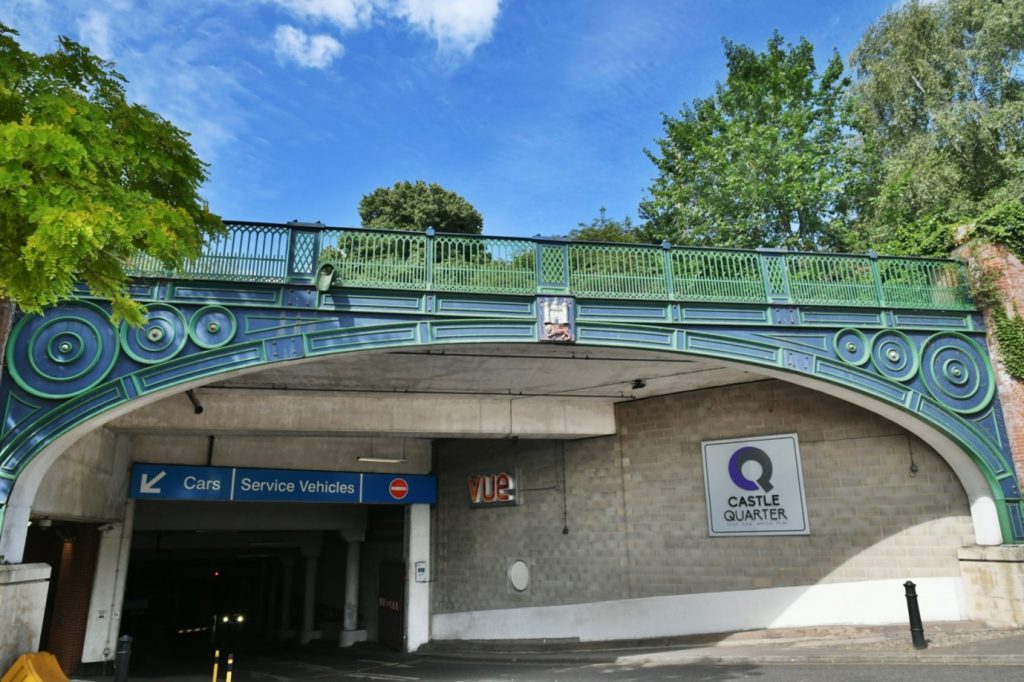
The decision to demolish Bishop Bridge was the catalyst that brought the Norwich Society into being in 1923. This is the story of how they managed to save this part of our Heritage. We then take a virtual route around Norwich which also covers many of the other successful campaigns to protect Norwich’s heritage, (as well as some failures). Without the Society’s activity, Norwich would look a lot different today. The route follows the river to Wensum Street and then moves into the City via Tombland before ending outside the Assembly House.
Jonathan Hooton is a past Chairman of the Norwich Society (2016-18) and was involved in their centenary celebrations in 2023, which resulted in the publication of “Norwich 100: How the Norwich Society has supported Norwich for 100 years”. He has since devised a guided walk around Norwich to point out the many places that owed their survival to the Society, which has been developed into a virtual tour of Norwich.
Jonathan Hooton
Tuesday 26th November 2024 at 2:30pm at Cley Village Hall
The remarkable life of Thomas Fowell-Buxton
Dr Alison Dow
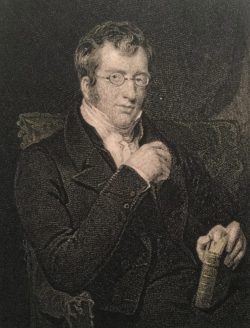
On the wall in a side-chapel of Norwich Cathedral a modest plaque reads – ‘Remember Thomas Fowell Buxton Bt. Member of Parliament Whose Efforts led to the Emancipation of 700,000 slaves on 1st August 1834.’ These simple words commemorate a towering Norfolk hero whose courage, compassion, bravery and tenacity helped change the lives of hundreds of thousands of people. This presentation will bring to life the story behind this inscription. It will look at the life of Buxton himself and the Norfolk and Norwich community that inspired him and supported him though the brutal, decades-long Parliamentary battle that led finally to the end of slavery throughout the British Empire.
Dr Alison Dow was formerly a GP in Mile Cross, Norwich. She was born and brought up in Northern Rhodesia—now Zambia, the country where David Livingstone died and is still revered because of his strong anti-slavery stance. Alison is not the first in her family to undertake research on Africa-related topics—among her relatives she counts some eminent academics specialising in colonial and African history. She is particularly happy to play her part by researching the life of this local historical figure whose role in history has been much overlooked.
